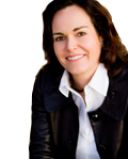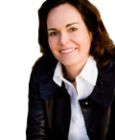Parenting
Not Sure If You Want Kids?
How science can help you make a decision
Posted October 16, 2013
Should you have kids or not? If you listen to the moms, they will tell you how children add joy and meaning to their lives. The childfree women will brag about their free time to volunteer and travel. But these women have one important thing in common: They enjoy a degree of certainty in having chosen one path or the other. Many women who don't know whether they want to be mothers are stuck in a purgatory of indecision. They’re quietly terrified that by the time they decide they want to reproduce, it will be too late to have biological children.
Of course, being unsure about taking the plunge to parenthood isn't exactly a new phenomenon. Journalist Corrie Pikul wrote a poignant Elle piece a couple years ago about her anxiety waiting for an overwhelming maternal urge to seize her while she gamed the biological clock. What is new, however, is the option to freeze your eggs to give yourself more time to figure it out. After the procedure was declared mainstream medicine last fall, fertility doctors are reporting a surge of patients, and more younger women are thinking about stashing away some frozen fertility for the future.
Egg freezing has obvious appeal for women who go all gooey at Facebook photos of their baby nephew eating cronuts, but just need a few more years to get a partner and the rest of their lives in order. Not surprisingly, a recent Belgian survey on the intentions and attitudes of women about egg freezing found that those who were most open to the idea didn't just want one child, but several children. Plus, it would seem sort of obvious that you've got to really, really want them, if you're willing to undergo weeks of hormone shots and plunk down $5,000 to $12,000 per round of stimulation and harvesting.
Yet, if you're a woman who's uncertain of her desires, deciding not to freeze brings a special kind of agony. The growing availability and popularity of egg freezing has put the subject of the biological clock on their radars. It's much harder to "let life happen" when you've got a chance to pause and protect a resource that you might really appreciate in a few years.
While researching my book about how egg freezing changes women's lives, I talked to many undecided women who tortured themselves with "what ifs": What if I fall in love with someone who wants kids? What if I'm suddenly overcome with baby pangs? What if I finally feel ready when I'm too old? What if I miss out on what is supposed to be one of life's most amazing experiences? What if I have regrets?
It's this fear of missing out that sends most women to the office of Georgia Witkin, PhD, a psychologist at Reproductive Medicine Associates of New York who counsels women interested in egg freezing. "I see women who know they want the option. They want a sense of control and choice," she says. It's a different mentality from women who are so gung-ho about motherhood that they settle for a "good enough" marriage or have a baby on their own. Those women don't let themselves get close to the precipice of "advanced maternal age." They don't put their faith in science.
At first, uncertainty seems like a safe place to hang out, but it can be hell. Witkin says women often struggle with the decision to freeze. "The women who sign up have thought about it for a while," she says. "There's always a trigger that prompts them to make the call. It could be a birthday, a breakup, a doctor's visit or hearing of a friend's fertility problems."
That's coupled with intense soul searching, adds Joann Paley Galst, PhD, a therapist in private practice in Manhattan who specializes in infertility counseling. "One of the things that's hard about freezing is that it makes women confront where they are in their lives," she says.
Yet, here's the big question: Does egg freezing help the undecided gain clarity? Does it push them in one direction or the other? Or do women simply replace the decision to be a mom with the decision to freeze? All you have to choose now is the backup plan.
There's something transformative about going through the process. Women tend to react in one of two ways. In the first scenario, the act the freezing nudges them along the mommy track. That's because it's nearly impossible to go to umpteen doctor's appointments, assault yourself with hormones, clean out your savings account and undergo surgery without admitting to yourself that you might want more than an option. You might actually want a baby. You also make a public declaration of sorts of your desires. A recent study found that the majority of women who underwent freezing planned to tell their friends and family. I found in my research that post-freezing, you're more likely to be committed to your goals—as in actually putting some effort into your OkCupid profile.
On the other hand, there are women who freeze their eggs to "check the box" so they feel as if they've done something to take care of themselves and escape the cultural pressure (and perhaps get their parents off their backs!). But they don't really plan to return to use them. "Many women see this as something that will make them more relaxed. They're less concerned whether it will work," explains Witkin. "That way they can say 'I can't blame myself. I did everything I could.'" Egg freezing as therapy, perhaps? The process made them feel better about their futures, but not necessarily more motivated to become mothers.
It's fascinating to see the role that technology can play in shaping the internal dialogue of deciding whether to have children. What is still frustrating: Some women may never experience the intense maternal longings that we've been led to believe will be our beacons. Some women might feel a burning desire when they fall in love with someone who wants to share the parenting experience. Or for lack of physical pangs, they make an intellectual decision to go for it. Or they decide they're perfectly happy being an aunt.
In the meantime, more and more women are seeking refuge in the freezer. It's nice in the world of "Maybe someday. Just not now." There is always hope. There is freedom from panic so you can think more clearly about what makes sense for you. But we all know that the respite from the biological clock is temporary, and eventually the aging clock forces every one's hand. Thankfully, there's peace in certainty. As Paley Galst says, "Whatever decision you make, you make it right for you."




